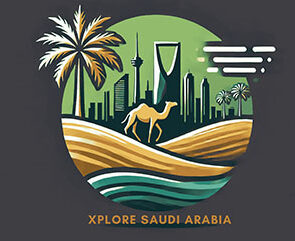
Saudi Arabia’s Vision 2030 is an ambitious strategic framework aimed at reducing the Kingdom’s dependence on oil, diversifying its economy, and enhancing public service sectors such as health, education, infrastructure, recreation, and tourism. Launched in 2016 by Crown Prince Mohammed bin Salman, this initiative seeks to transform Saudi Arabia into a global investment powerhouse and a hub connecting three continents: Asia, Europe, and Africa.
Key Objectives of Vision 2030:
Economic Diversification: Shift the economy away from oil by developing public service sectors and increasing investments in non-oil industries.
Public Service Enhancement: Improve sectors like health, education, infrastructure, and recreation to elevate the quality of life for citizens and residents.
Cultural and Entertainment Development: Promote cultural heritage and expand entertainment options to boost tourism and create job opportunities.
Flagship Projects Under Vision 2030:
NEOM: A $500 billion mega-city project envisioned as a hub for innovation and sustainability. Spanning 26,500 square kilometres in the northwest of Saudi Arabia, NEOM aims to be powered entirely by renewable energy and focus on industries such as biotechnology, food production, entertainment, and media.
The Red Sea Project: This luxury tourism initiative aims to transform 50 islands and numerous other sites along Saudi Arabia’s west coast into an exclusive tourism destination. By 2030, it is expected to contribute SAR 22 billion annually to the Kingdom’s GDP and create 70,000 new jobs.
Quiddity: Located near Riyadh, Qiddiya is set to become Saudi Arabia’s capital of entertainment, sports, and the arts. It aims to attract 17 million visitors annually by 2030 and contribute SAR 17 billion annually to the nation’s GDP.
The Line: Part of the NEOM project, The Line is a 170-kilometer linear city designed to house nine million residents in a zero-carbon urban environment. It emphasizes human well-being and space efficiency, featuring a 500-meter tall structure where all necessities are within a five-minute walk.
Economic Impact:
Vision 2030 has led to significant economic developments:
Gross Domestic Product (GDP): As of 2023, Saudi Arabia’s GDP reached $833 billion, driven by diversification efforts.
Foreign Direct Investment (FDI): FDI increased from SR5.321 billion to SR17.625 billion between 2016 and 2021, reflecting growing investor confidence.
Non-Oil Sector Contribution: The non-oil sector’s contribution to GDP rose to 60% in 2023, with significant growth in tourism and technology.
Social and Cultural Reforms:
Vision 2030 has initiated notable social changes:
Women’s Empowerment: The female labour force participation rate increased from 19% in 2017 to 33% in 2022. More women are being appointed to leadership positions across various sectors.
Cultural Initiatives: The lifting of the 35-year ban on cinemas in 2018 led to the opening of over 300 cinema screens. Saudi Arabia has hosted international events like the Dakar Rally and the Jeddah Season festival. Investments are also being made to preserve and promote cultural heritage sites, such as Al-Ula.
Renewable Energy and Environmental Initiatives:
The Kingdom is investing in renewable energy to achieve environmental sustainability:
Renewable Energy Goals: Saudi Arabia aims to generate 50% of its energy from renewable sources by 2030. Projects like the 300 MW Sakaka Solar Power Plant and the 400 MW Dumat Al Jandal Wind Farm are steps toward this goal.
Saudi Green Initiative: Announced in March 2021, this initiative plans to plant 10 billion trees to combat desertification and reduce carbon emissions. It aligns with Vision 2030’s objectives of improving environmental sustainability and enhancing the quality of life for Saudi citizens.
Vision 2030 represents a transformative journey for Saudi Arabia, aiming to diversify its economy, enhance the quality of life, and position the Kingdom as a global leader in various sectors. While significant progress has been made, the initiative must navigate economic, social, and environmental challenges to achieve its ambitious objectives.






I hadn’t realized how massive Jubail is in the global context—its specialization in petrochemicals and steel really underscores the Kingdom’s industrial capabilities. Curious to see how Riyadh’s broader focus complements this specialization.
The $63 billion investment in Diriyah reflects a bold vision for Saudi Arabia’s future. With over 38 hotels planned and thousands of residential units, Diriyah is positioning itself as a world-class destination for both tourists and investors alike. I’m curious about the potential impact on local businesses and the broader economy.
This strategic partnership seems like a win-win for both countries. I’m curious how cultural and regulatory differences might affect the integration of Brazilian talent into Saudi sectors like tech and healthcare.
The scale of Qiddiya is impressive, but what really stands out is its potential to create long-term jobs and shift global perceptions of Saudi Arabia. Projects like this could play a pivotal role in reshaping the region’s tourism and entertainment landscape.
It will take little time to create more job I think. Yes, it true, Qiddiya plays a pivotal role in reshaping the region’s tourism and entertainment landscape.
I like the helpful info you supply in your articles.
I will bookmark your weblog and check again here regularly.
I’m moderately sure I will be told many new stuff right
here! Good luck for the next!
Thanks